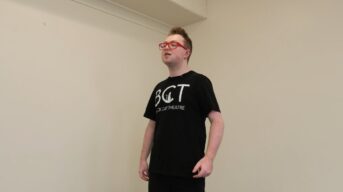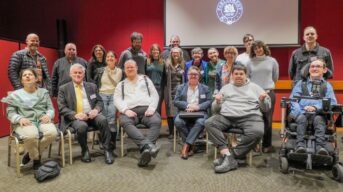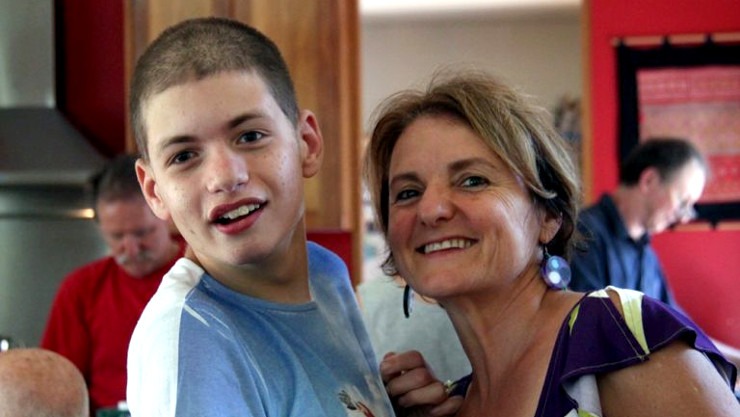
Why disability advocacy is so important
These three stories show why the disability advocacy work of organisations like CID is so important.
With disability advocacy funding guaranteed in NSW only until 2020, our members are running the Don’t Silence Us campaign to ask the Premier of NSW to guarantee secure, permanent funding for disability advocacy organisations.
Shooshi and Bodhi
My name is Shoshana (Shooshi) Dreyfus and I am a mother of three young men, one of whom has a severe intellectual disability as a result of a rare chromosome disorder.
His name is Bodhi and he’s now 22 years old. Up until he was 17, he lived with us but now he lives in a group home. This is because life was really tough with Bodhi.
Even though he’s completely gorgeous, he’s also very challenging – he can’t speak yet he wants to say a lot and you can’t take your eyes off him as he has no sense of danger or what’s appropriate in life. He’s also a really bad sleeper and when he lived with us we couldn’t go anywhere or do anything we wanted to do as a family and we were completely exhausted.
It’s really hard to explain the difficulty of life with Bodhi – he broke lots of things – our other kids’ toys, our books, our furniture. It was relentless.
We didn’t know anyone else with a child like him and often times I needed to ask someone who might have useful knowledge to help us and the only place I could get any decent understanding and real answers from was CID – Council for Intellectual Disability.
I have called on their expertise so many times.
One time I called CID was when Bodhi was 17 and we were at the end of our tether, having had a few rounds of emergency respite funding and the like. We were barely coping from the 17 years of sleep deprivation and non-stop running after Bodhi. Our marriage was suffering and our other kids were suffering.
At that point, we were told that a group home was being set up for three young men in our area who were either wards of the state or blocking respite beds and that Bodhi could have the fourth place in the group home on one condition – that we make him homeless first. This was because the NSW government doesn’t provide housing for people under 18 as they ‘should’ be living in the family home.
Of course this seemed outrageous to us – we were barely coping as it was and to have to engineer a further crisis by either not picking our son up from respite or dropping him off at the police station and then having to be answerable to DOCS etc. was too much.
At this point I again contacted CID as I wanted to get the facts: was it true that we would have to make our son homeless to get a place in a group home? What was the history of this kind of situation? What had other people done in similar situations?
They were really helpful and armed with my ‘facts’, I wrote to the Premier and the Disability Minister and the head of ADHC and all the chain of command through my local area and we managed to avert that crisis and gain the place for our son in the group home and move him in slowly at a pace that suited him, and he’s been living there ever since.
We see him twice a week at least and we are really involved with the group home and we have a normal life back, which for us, is extraordinary!
CID was so helpful. If their advocacy work ever loses its funding, I can’t imagine what life will be like for people like me and Bodhi who can turn to CID in their hour of need.
Anthony
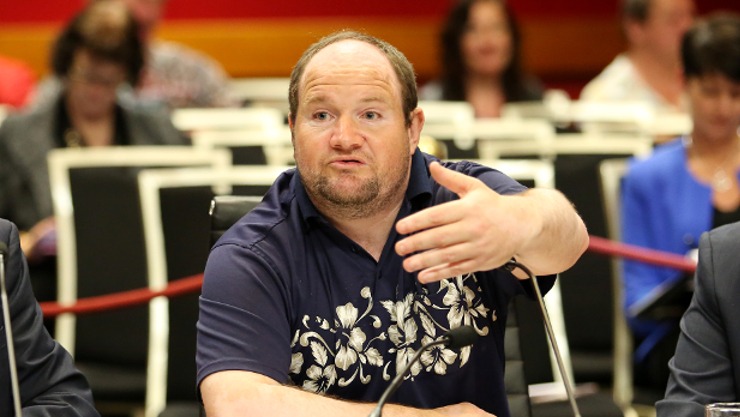
My name is Anthony Mullholland and I am an advocate with CID. I have learning difficulties.
Transport is something that I am passionate about. I rely on transport. If I don’t have transport, how do I get around? For a lot of people with disability, they can’t drive.
I’m grateful that David [from CID] got me on the board for ATAC. ATAC is the Accessible Transport Advisory Committee, which is a committee for people with disabilities, multiple disabilities.
We come together to talk about transport issues and solutions and it’s really good because it gives us a voice. For a long time people with intellectual disability haven’t had a voice.
I enjoy the advocacy I do because I think that I make a difference to someone else’s life.
I’ve seen over time we’ve achieved a lot of things we never thought would be possible.
It makes me cry to see what the Government’s doing to CID. It’s not very nice, it’s very sad for a lot of us, it makes us upset as well.
I think the government, by silencing our voice… will not make any proper decisions. They will make improper decisions on stuff that people with intellectual disability rely on.
They don’t know, they don’t go through what we have to go through, the hardships and pain and suffering we have to go through, battling every day to achieve a goal. They put obstacles in against us.
It’s not up to them to tell us how to live our life, it should be living our way.
Robert
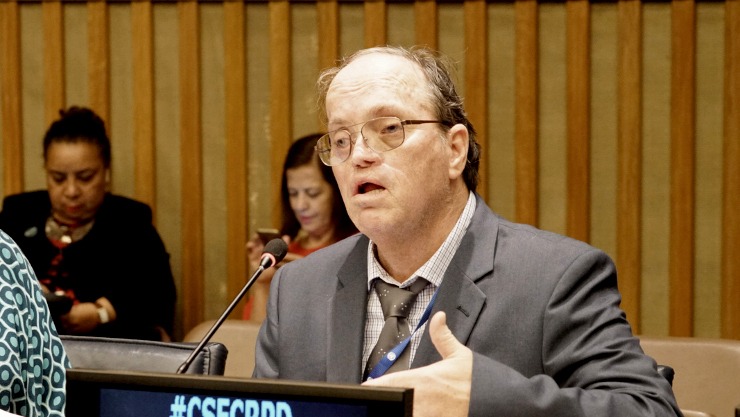
My Name is Robert Strike and I am a CID Board Member. I have intellectual disability. I don’t have a problem talking about it.
People with disabilities used to be told to be quiet. They don’t want to know you back then. But slowly they are letting people with disabilities speak for themselves.
I think that’s important, because people with disabilities like me and my daughters, we always speak up against anybody who thinks we are different.
Labels are not supposed to be on people. Labels are for jars, not for people.
We are no different than anybody else in the community as far as I’m concerned. I think it’s important for us to show that people with intellectual disability can do things like anybody else.
If advocacy is not around it’s a bad thing. I think it will go back to the olden days and I don’t want that. I like changing things.
You used to be locked up in an institution. CID advocacy helped close some institutions down.
I do a lot of advocacy with CID.
I talk to police and security guards about how to treat people with intellectual disability in the right way.
CID sent me to America to the [United Nations disability] conference and we talked about Easy Read … because people can’t read big words. Big long words scare people sometimes.
If CID is not around, where are we gonna go?
It means we are left out in the lurch again.
If our children and our family don’t have advocacy I feel rotten. I think it’s sad if we get the funding cut, you know what I mean?
NSW Government should make certain that advocacy stays around. And make certain that advocacy is always in our lives.
Help us save disability advocacy
Did you know that disability advocacy funding could end in 2020?
Our members are running the Don’t Silence Us campaign to ask the Premier of NSW to guarantee secure, permanent funding for disability advocacy organisations.
Join our campaign now and help us save disability advocacy.



 1800 424 065
1800 424 065 












